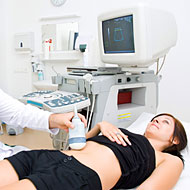- General Articles
- General Pregnancy Questions
- Baby Growth
- Pregnancy Diet
- Miscarriage
- During Pregnancy
- Twin Pregnancy
- Toddler Meals
- Home Remedies During Pregnancy
- Breastfeeding
- Pregnancy Week By Week
- Pregnancy Tests
- Ectopic Pregnancy
- Pregnancy Signs and Symptoms
- Pregnancy Stages
- Potty Training
- Fetal Development
- Preschooler
- Postpartum Depression
- Toddler Illness
- Baby Care
- After Pregnancy
- Molar Pregnancy
- During Delivery
- Beauty and Style
- Pregnancy Clothing
- Preconception
- Fertility
DHEA for Infertility
It might be alarming to hear that about 10 percent of women have difficulty getting pregnant or staying pregnant in the United States. Although if a couple is unable to bear a child naturally, it’s not always because of the woman, but the physiological and psychological bearings of being infertile are felt more by women than men. The news of infertility is usually met with feelings of disappointment and loss but today, people have a lot more options to treat infertility than their predecessors.
Most treatment options are expensive and invasive with side-effects leaving middle-class families to deal with financial woes in order to have a child. But there are alternate options that more and more people have started to lean towards. One such option is DHEA for infertility to compliment IVF treatments.
This treatment is a very recent development in the infertility treatment world, and was actually discovered after a patient starting taking DHEA supplements on her accord to cure infertility. DHEA supplements are mainly used as treatment for women who cannot conceive due to premature ovarian aging. This form of treatment is used in conjunction with IVF for better and more prospective results. DHEA is short for dehydroepiandrosterone, supplements made of it work by rejuvenating ovarian function by allowing for more and better-quality eggs, resulting in increased IVF pregnancy rates and lower miscarriage rates.
DHEA is a hormone that is naturally made by the human body but it can be recreated in laboratories from chemicals found in soy and wild yam. But just eating these vegetarian products does not form DHEA as the body does not have the chemicals required to convert wild yam or soy into DHEA. We produce more and more DHEA internally from birth until about the age of 25, this when the production of DHEA reduces by 2% each year after.
While it was earlier believed that a woman’s eggs ages and deteriorates as she ages, this theory has been re-looked at with the advancement of DHEA supplements in treating infertility. It is now being said that it is not the eggs that age but the ovarian environment that goes through a steady decline due to decreasing androgen levels. DHEA up till now was only being used to treat disorders such as erectile dysfunction and low libido in women, and to increase muscle mass and strength but is now being used as a fertility treatment to rejuvenate ovarian functioning and helps fertility in the following ways:
- Reduces the risks of miscarriages
- Increases chances of spontaneous conceptions.
- Improves the quality of eggs
- Increases embryo quality
- Reduces the time to pregnancy
- Increases the rate of IVF pregnancy
- Decreases chromosomal abnormalities in embryos
How DHEA impacts IVF and OR parameters is still not known, although it is speculated by medical experts that improved embryo cells or ploidy may be an explanation in spontaneous pregnancies, improvements in miscarriage rates, and pregnancies post IVF.
A survey of IVF centers shown that about a third of all IVF centers in the world are using DHEA to increase pregnancy chances, and clinical trials have proved that DHEA has a beneficial effect on improving the quality and quantity of oocytes and embryo effectively. These supplements are known to have possible but non- serious side effects like change in menstrual cycle, acne, hair loss, stomach upset, and high blood pressure. It is also recommended that people with liver problems, depression, bi-polar disorder, cholesterol problems should avoid taking DHEA. In any case, DHEA should only be taken under guidance and under prescription of your doctor or fertility expert.
So the real question remains of whether DHEA is safe? The use of synthetic DHEA in fertility has only been recently discovered, so studies are yet being conducted for examination of the safety of ingesting these hormones. Although DHEA is available over the counter, over medication can cause an imbalance of hormones and eventually have an adverse effect on fertility than what was intended. These supplements are not regulated by the FDA and no formal guidelines for use have been established. It may be fair to say that since there are no dosage guidelines set, fertility clinics could be experimenting with protocols of their own that could prove to be risky.
But does DHEA work in improving fertility for women with endometriosis, PCOS and fibroids? Medical experts have mixed opinions about the outcome as DHEA affects estrogen production, and suggest it should be avoided when patients suffer from hormone sensitive conditions. They also feel that fertility clinics, naturopaths, and acupuncturists should not prescribe or recommend DHEA as a fertility drug for people suffering with the mentioned disorders. In conclusion, DHEA has been proven to work wonders for women with declining ovarian environment, and has had note-worthy success rates. Couples should however discuss all options with their doctors before opting for DHEA treatment for fertility, keeping previous medical health conditions in mind. It is also highly advised that dosage should not be increased without your doctor’s consultation.
Reference
http://www.ncbi.nlm.nih.gov/pmc/articles/PMC3112409/Read more articles from the Fertility Category.



 7 Must-Haves Before Your Baby Arrives
7 Must-Haves Before Your Baby Arrives Bonding Games for Babies
Bonding Games for Babies DIY Baby Bath Towel Apron
DIY Baby Bath Towel Apron Common Late Pregnancy Fears
Common Late Pregnancy Fears